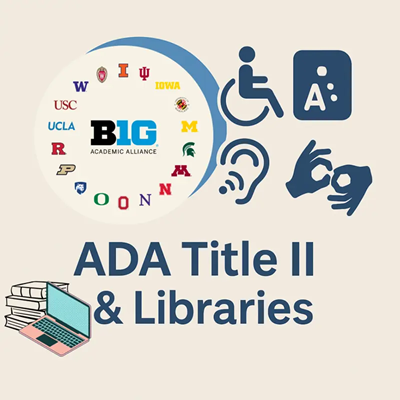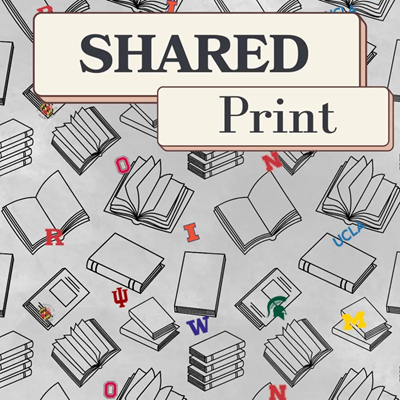
Libraries
The Libraries of the Big Ten Academic Alliance are aligned in the vision of uniting our separate collections into one collection, shared and fully networked: the BIG Collection. By this phrase we mean a holistic and comprehensive understanding of what a library "collection" is: not simply the things we hold, but our services; our people; our expertise; our technology; and our infrastructure.
In advancing this future of interdependence and excellence, we are guided by our North Star in everything that we do:
In order to advance a just, trustworthy, scalable & sustainable open knowledge ecosystem, make open, more equitable scholarship our lead purpose.
On these pages, you'll find more about the services, programs, and community that are advancing this vision in a principles-centered, mission-driven, values-aligned way.

ADA Title II & Libraries
Catch the webinar replay + slides from our August 27 event. Now posted on our Accessibility page.

Big Ten Open Books
A new model for open-access publishing
Free, trusted titles from Big Ten university presses.

Shared Print White Paper
Explore the vision for a collaborative, distributed archive across Big Ten libraries.
Increasing Access: BTAA Libraries Project on Open Homework Systems
Funded by a grant from the Institute of Museum and Library Services (IMLS), the project is intended to support IMLS’s objective to advance shared knowledge and learning opportunities for all students, as well as strengthen the ability of libraries to work collaboratively for the benefit of the communities we serve, said Bryan McGeary, learning design and open education engagement librarian at Penn State and principal investigator on the project.
“As the commercial textbook market continues to evolve, publishers have sought to increase profits by bundling textbooks with homework systems and expensive access code content,” McGeary said. “While OER is an appealing alternative option to many faculty, without the convenience of an accompanying homework system, it is difficult to get widespread faculty buy-in. This project will produce findings that help libraries expand their OER programs to include support for open-source homework systems many faculty need in order to consider and adopt OER.”
“Open Homework Systems: Planning and Piloting Library Support” involves a project team of librarians and staff from three Big Ten universities — Penn State, the University of Minnesota, and Northwestern University — and consists of three phases over a two-year period. The first phase encompasses an environmental scan of homework systems used by member institutions and an investigation of possible available homework systems. Next, the core project team will identify three or four instructors at each institution to evaluate both OER and a homework system appropriate for their courses. Both instructors and their students will provide feedback through interviews, discussions, surveys, focus groups, and other mechanisms.
An advisory group of academic librarians will be established to provide guidance and insight. The group will receive regular updates from the core project team, gather periodically to review progress and project results and provide input on the dissemination of those results.
Finally, the project team will use their findings to develop a toolkit and open-source homework systems matrix for libraries as part of their OER programs. The insights gathered will be available for any institution to learn from and replicate.
This project will impact both students and faculty within Big Ten Academic Alliance institutions, said Rebecca Miller Waltz, associate dean for learning and engagement, Penn State University Libraries.
“Students in classes with high course material expenses will reap the benefits through the cost savings and pedagogical impact that a fully open suite of course materials allows,” Waltz said. “Faculty who seek alternatives to commercial homework systems or desire greater levels of customization with their course materials will also benefit, especially those who teach courses in STEM and language fields.”
In addition to McGeary, members of the core project team are Micah Gjeltema, open education and affordable content librarian, University of Minnesota Twin Cities; Lauren McKeen McDonald, open education librarian, Northwestern University; Shane Nackerud, director of libraries course materials services, University of Minnesota Twin Cities; and Corey Wetherington, open education infrastructure specialist, Penn State; and Sijie Yu, open homework systems graduate assistant, Penn State.
